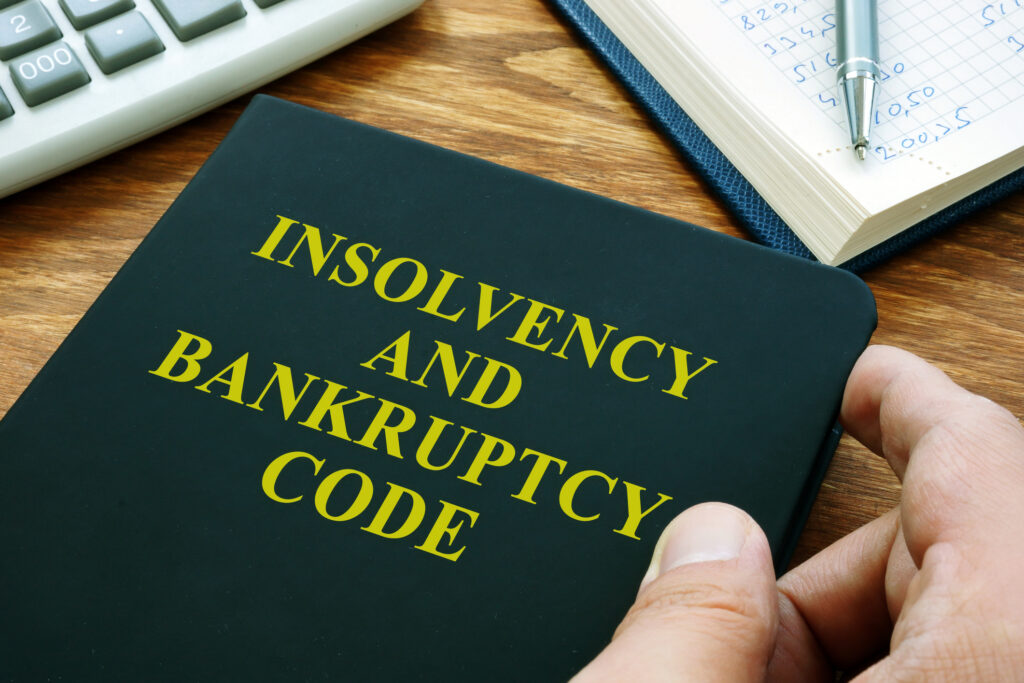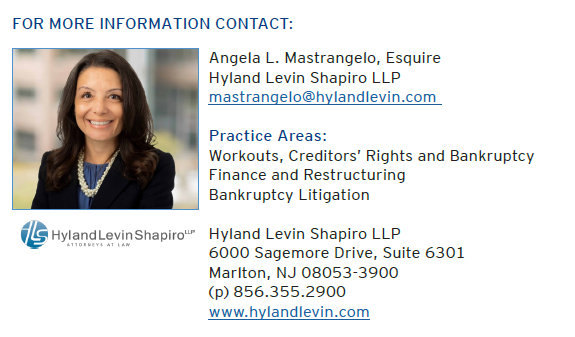 Let’s look at how a temporary change to the bankruptcy code protects landlords. The Consolidated Appropriations Act of 2021 (CAA), signed into law on December 27, 2020 provides money for governmental departments, coronavirus stimulus to individuals and businesses, but also made a temporary change to the bankruptcy code. Some of those amendments directly affect the rights of landlords of commercial properties.
Let’s look at how a temporary change to the bankruptcy code protects landlords. The Consolidated Appropriations Act of 2021 (CAA), signed into law on December 27, 2020 provides money for governmental departments, coronavirus stimulus to individuals and businesses, but also made a temporary change to the bankruptcy code. Some of those amendments directly affect the rights of landlords of commercial properties.
Download Printable Article (PDF) >>>
Since the pandemic started, landlords have been working with their commercial tenants by reaching deferral and waiver arrangements for payment of rent in arrears. Landlords are concerned that if their tenants filed a bankruptcy petition, payments made outside the ordinary course of the lease could be recovered by the bankruptcy estate, if the trustee brought a lawsuit to recovery of those payments under Section 547 of the Bankruptcy Code. Sections 547 and 550 provide for the avoidance and recovery of payments made on or within 90 days before the debtor filed for bankruptcy or one year if such transfer was to an insider, known as the preference period.
Under the CAA landlords have temporary protection from preference and claw back litigation. The safe harbor is geared toward encouraging landlords to work with their struggling commercial tenants, reaching agreements on the payment of rent without the fear of having to turn over those payment to a bankruptcy estate. To qualify, the payment arrangement should have been entered into on or after March 13, 2020, and the payment arrangement should not include, fees, penalties, or interest in an amount greater than what the tenant would have if paid on time and in full.
Landlords should also be prepared that if a tenant does file for bankruptcy, Section 365(d)(4) allows additional time for debtors to assume, assign, or reject nonresidential real property leases. Under the CAA, a Chapter 11 debtor has an initial 210 days to make a determination, and a 90-day extension provision with landlord written consent. However, debtors will still be required perform all of their obligations under the lease in a timely manner, unless the court directs otherwise.
Since these amendments will sunset on December 27, 2022 unless extended, it is important to understand the developments in case law and provisions of the change to the bankruptcy code. Our professionals can assist you in navigating the new rules and how they can impact your rent collection actions.
This e-alert is provided by Hyland Levin Shapiro LLP as a general summary of the topics discussed; it does not replace the need to consult with a legal professional and is not intended to be a substitute for competent professional advice, including any advice regarding the effect of the Consolidated Appropriations Act of 2021 on your particular business. If you have any questions about the provisions summarized above, please contact Angela L. Mastrangelo, Esquire at mastrangelo@hylandlevin.com or 856.355.2989.
The contents of this article are for informational purposes only and none of these materials is offered, nor should be construed, as legal advice or a legal opinion based on any specific facts or circumstances.



